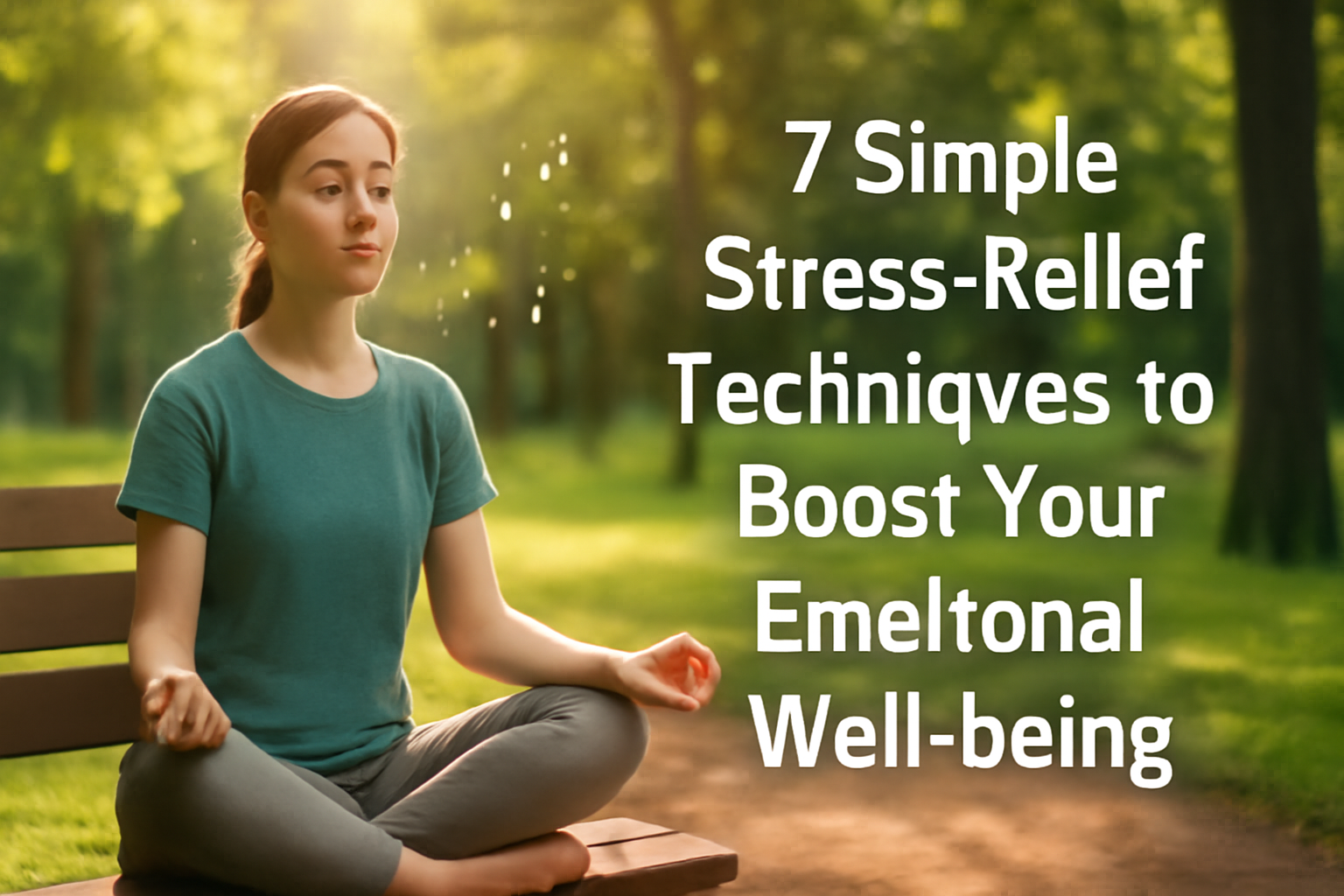In today’s fast-paced world, managing stress is vital for maintaining both physical health and emotional balance. Chronic stress can negatively impact your immune system, disrupt sleep, and reduce your overall quality of life. Fortunately, adopting simple stress-relief techniques can help you stay calm, focused, and resilient. This article explores seven effective methods to reduce stress and enhance your emotional well-being.
1. Deep Breathing Exercises
Deep breathing activates your parasympathetic nervous system, which promotes relaxation. Try the 4-7-8 technique: inhale deeply for 4 seconds, hold your breath for 7 seconds, then exhale slowly for 8 seconds. Repeat this cycle several times to calm your mind.
2. Physical Activity
Exercise releases endorphins, natural mood boosters that combat stress. Even a short walk or gentle stretching can improve your mental state. Aim for at least 30 minutes of moderate exercise most days of the week.
3. Mindfulness Meditation
Mindfulness meditation helps you stay present and aware, reducing anxiety and preventing negative thought patterns. Spend 5 to 10 minutes focusing on your breath or sensations without judgment.
4. Journaling
Writing down your thoughts and feelings can help process emotions and gain perspective. Try journaling daily or whenever you feel overwhelmed to clear your mind and identify stress triggers.
5. Connecting with Nature
Spending time outdoors can reduce cortisol levels and improve mood. Even brief exposure to green spaces, sunlight, or fresh air can have restorative effects.
6. Listening to Music
Music has a powerful impact on emotions. Listening to calming music can lower heart rate and ease tension. Create playlists with your favorite relaxing songs for stress relief.
7. Social Support
Talking with friends, family, or support groups provides emotional comfort and practical advice. Sharing your feelings reduces isolation and strengthens your resilience.
Cultivating a Stress-Resilient Mindset
Incorporating these techniques into your daily life promotes a healthier response to stress. Remember that managing stress is a continuous process, and small, consistent efforts lead to significant improvements. Prioritize your emotional well-being by adopting these habits and creating a balanced lifestyle.

